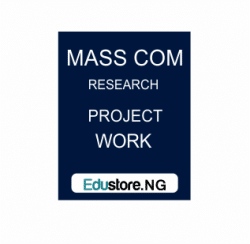ABSTRACT
There is an increasing number of female journalism students in training institutions in Europe and Asia and Africa (Frohlich 2004; Creedon 1993; Kosicki & Becker 1992; Peterson 1988). However, it has been observed that there is a disproportionate number of practicing female journalists who graduate from these programmes (Jurkowitz 2003). The number of female students graduating from journalism schools is high, but the number of those practicing in newsrooms is disproportionately lower. For example, University of Zambia (UNZA) records of graduates in the Department of Mass Communication indicate that more women than men graduate as journalists. The author’s observations based on over twenty years of teaching journalism in the UNZA programme is that in their entry year, the female students declare that they want to be trained as journalists and to work in the newsroom. But by third and fourth year, their career direction seems to change. They lose interest in traditional journalism reporting and begin to prefer public relations and other specializations in the communications industry. Even those who at graduation accept reporting positions in the newsrooms, pursue alternative careers within the first three years. This phenomenon brings up a critical question: What drives females out of the newsroom? Besides, the obvious matter of better salaries. It posits that additional influences on career choices are grounded in socialization, biased attitudes, cultural beliefs and are gender based.
DOWNLOAD COMPLETE WORK- For Reference Only: Materials are for research, citation, and idea generation purposes and not for submission as your original final year project work.
- Avoid Plagiarism: Do not copy or submit this content as your own project. Doing so may result in academic consequences.
- Use as a Framework: This complete project research material should guide the development of your own final year project work.
- Academic Access: This platform is designed to reduce the stress of visiting school libraries by providing easy access to research materials.
- Institutional Support: Tertiary institutions encourage the review of previous academic works such as journals and theses.
- Open Education: The site is maintained through paid subscriptions to continue offering open access educational resources.





